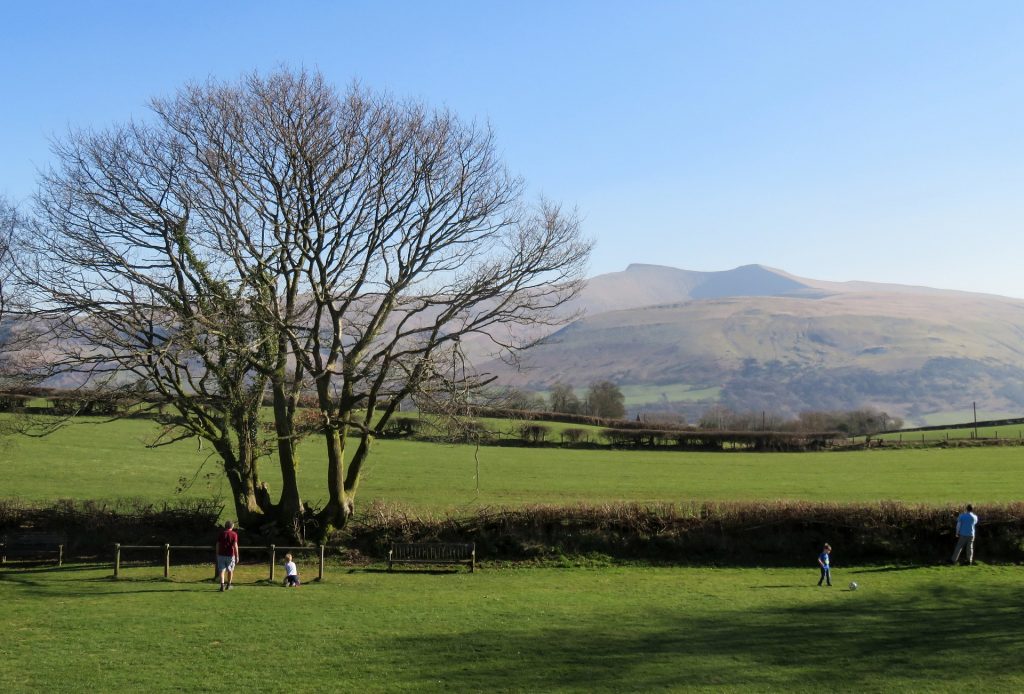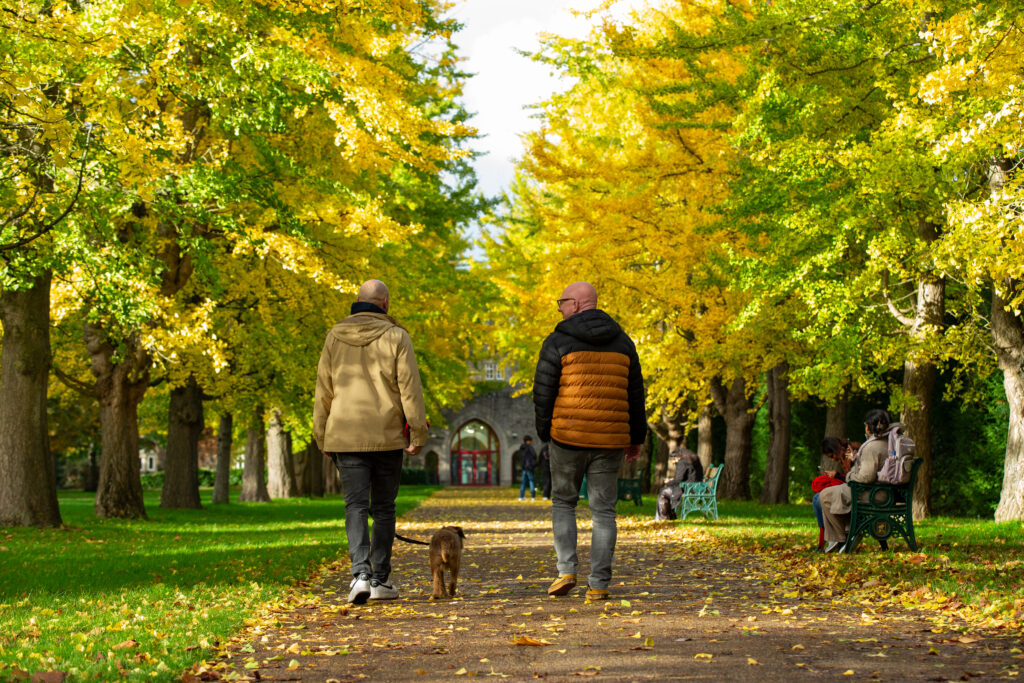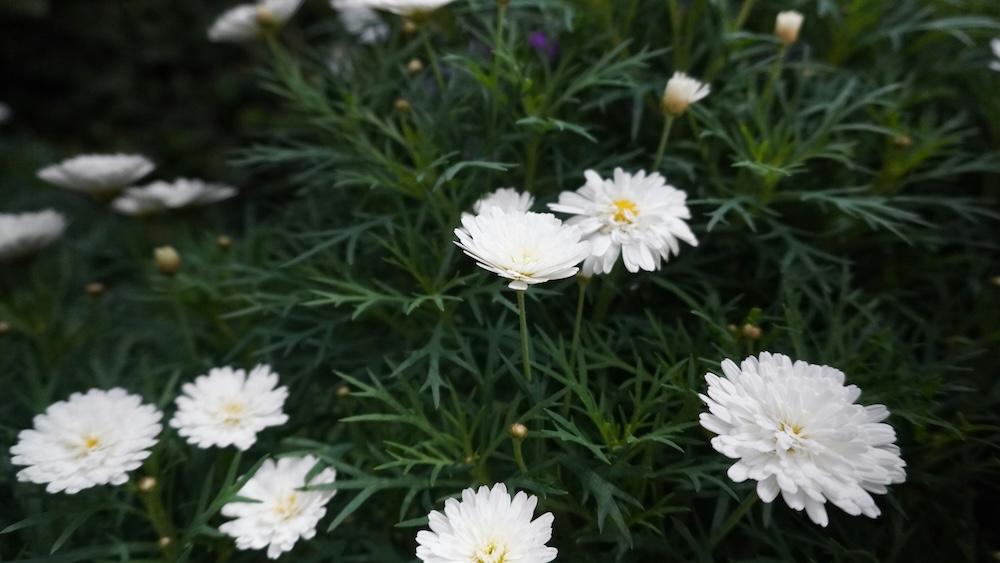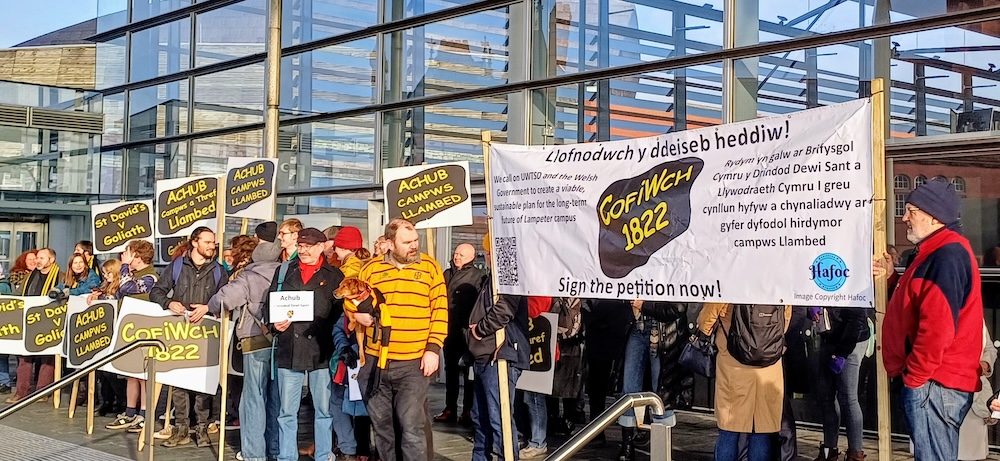In the first instalment of a major new series for click on wales, Meltem Arikan explains her feeling of belonging to Wales. Translated from Turkish by Filiz Celik.
My story starts with my arrival at Cardiff train station on a Monday in July 2013. Pınar Öğün was with me. We (me, my son, my husband, Pınar and her husband Memet Ali Alabora) had originally planned to move to Cardiff two years later, but now our lives were being determined by accusations made by the Turkish authorities.
In 2011, I wrote an absurd play, ‘Mi Minör’. As I was writing this play, I decided it would be the last play I would write in Turkey. I was adamant that I was going to move to Wales in the next two years. However, a month after the production in Istanbul ended, the creative team of our play became the target of incomprehensible accusations and hate crimes connected with the Gezi Park protests. We had three months of nightmarish time, unable to leave our homes. As our lives had become endangered, the lead actor Pınar and I left our homes, our loved ones and our past lives behind, and set off with a single suitcase for Wales. This was of course not how I had envisioned our arrival in Cardiff. Bitter, broken and incomplete…
Over the years, I had created a wholeness out of the brokenness in my inner worlds. Like getting used to everything through acceptance, like letting go of everything through acceptance… Acceptance… I never felt belonging, I could never… perhaps because of my childhood spent in hospitals due to an accident when I was very little, perhaps because my mother died when I was seven years old, perhaps because I never had a room of my own when I was living with my paternal grandmother… hence I was able to adapt to every situation easily. Accept reality as it is. And then fight that reality. Thus, I accepted all the non-abstract realities. To survive, to maintain my inner balance, I never com-plained, but fought. I had learned how to create a wholeness from my brokenness. Without expectation, quiet, distant, introverted living.
As I stepped out of Cardiff station, the wholeness in me was shattered. It happened in a moment, in a huge abyss and despite me. In a moment… It was like the wholeness I had created in the past was shattered. I was at a loss as to how to deal with the excitement and peace that filled me.
When I left my home, my loved ones and my past, in one night, how could a gust of wind throw all my pain away and calm me? … How could my heart adapt to the rhythm of happiness after all the unhappiness? …
After spending a month in a hotel room, we finally rented a house. My son enrolled in the university where he wanted to study. Memet Ali Alabora (the director of Mi Minör and Pınar Öğün’s husband) and Melin Edomwonyi (the artistic designer of Mi Minör) managed to come and join us in Wales.
The more I felt complete, the more my feelings towards Wales overcame me like lava streaming from a volcano. I, who had controlled my feelings all these years, was now being controlled by my feelings. Despite me, despite me, despite me…
The relationship we have to a second language other than our mother tongue is naturally affected more by the circumstances under which we learn that language, the bond that emerges between the self and the language, and what that language means for us, than it is by our desire to learn and speak that language. Whether we are a child or an adult, how we learn another language is not only determined by whether we want to learn it or not. For a long time, when I was living in Turkey, I refused to learn English, but then after I turned 35 I needed to learn it for my job – yet I still refused to speak English if I didn’t absolutely have to. Even now, when I’m speaking English I don’t feel comfortable. The English language is like a dress that doesn’t fit me but I have to wear…
I travelled to London twice to learn the English language I had been refusing to learn since my childhood, but it didn’t make me happy. When I had to learn English for work I decided to go somewhere other than London, and I found a course for myself in Wales. Trebinshun House… Until I went to study there, the school had never had any students from Turkey. It was expensive, and people questioned the rationale for going to Wales to learn English. But I was adamant. There was no rationale for going to Wales to learn English, but still I insisted. Attending a course that I had happened to find during an internet search irrationally became a matter of life and death for me…
After travelling two and a half hours from Heathrow Airport, I felt as if I had reached a different world. Although it was July, the weather was very very cold. On the narrow road that we were driving along, there was no room for another car. Everywhere looked like painted in green. The green was meeting the sky… It was as if I had arrived nowhere, but in the middle of everything. Quiet, peaceful and cold…
When I entered my room in Trebinshun House I was frozen. The room didn’t belong to this century but to me… The view of the valley from the window, the hundred-year-old huge tree in the garden, the sheep that looked like white dots from afar, everything was new yet so familiar… Only the cold that I felt in my bones….
I learned to live without feeling belonging until I was 35, but that first morning I woke up in Brecon I felt this ‘I belong to here’ feeling… I didn’t know if I should be surprised at my new feelings or if I should try to understand why I was feeling like that or if I should control the tears rolling down from my eyes. I found myself knotted in the contradiction of my senses and my rationality. To belong. Not to belong. Where do I belong? Where is my home? Is my home really my home?
I still remember the telephone conversation that I had with my husband that morning:
—Hello?
—What’s the matter? Why are you crying? Is there a problem there?
—No, no. There’s nothing wrong here but it is just too cold… I’ve a feeling in me since I arrived here yesterday but it is getting stronger since I woke up…
– What’s happening? You can’t be crying because it’s cold there. Why are you crying? What feeling in you? Meltem, what’s happening?
—I feel myself belonging somewhere after all these years. It’s like I was born here, like this is my country, my land… Do you think I may have been given up for adoption when I was a baby? What if my mother and father are not my real mother and father? Maybe everyone hid this from me?
—Meltem are you OK? Where’s Wales, where’s Ankara… You were born in Ankara. No one gave you up for adoption. Furthermore, your mother and father are your real mother and father. Where did you come up with these nonsense scenarios?… You’re an intelligent grown-up woman.
—I want to live here in Wales.
—No one can decide to settle somewhere they’ve only lived for one night.
—They can. Aren’t you listening to me? For the first time I feel myself belonging to somewhere so much. Can you understand what that means? And I’m not saying what I feel is normal. I hate the cold. I’m freezing in the middle of the summer. I don’t like old furniture, but I’m staying in a hundred–year old home, and despite all that I feel I belong here. I know these places, but I can’t, I can’t explain. This is my home.
—I understand you, I realise how surprised you are to be feeling you’re belonging somewhere for the first time. I also realise you’ve never felt anything like that, neither in Turkey nor in any other country. But first just calm down!
—What if my mother’s side is from Wales? I know nothing about them. Maybe my grandmother is not from Romania but Welsh?
—OK, we’ll do in-depth research, we’ll research your roots on your maternal side. As I remember, the first known tribes in Macedonia were Celts, the Thracians and Illyrians. It’s possible that modern-day Macedonians are the descendants of those tribes and if you like we can research your father’s side too. I promise you.
—OK, but if I have a connection to this place, even through ancestors of my ancestors, can we live here?
—Whether you have a genetic connection to Wales or not, if you still have these feelings at the end of your course I promise to buy you a house there.
—Promise?
—Promise. But now you promise me something. After hanging up the phone go and wash and just focus on your English lectures.
Since that day I turned in to a woman who was born and bred in Turkey, who not only wrote and thought in Turkish but also was amazed by the strength of expression in Turkish, but who felt she belonged to Wales and who struggled to find a rational and scientific explanation for her new-found feelings of belonging.
The year that I arrived in Trebinshun House I spent three weeks there in Brecon. During those three weeks, for the first time in my 35 years I rode a horse. Riding the horse for the first time I spent two hours in the Brecon woods. I didn’t feel scared, worried or uncomfortable. I only felt a pain that hurt my heart. Why, why were all the things that should have belonged to me or the things that I should have belonged to too far away from me? The horses that I was introduced to for the first time in Brecon never left my mind until I came back to Wales. I managed to heal the disappointments created by people mostly through the time I spent with horses. In the end, in fact, I owned my own horse, and since then horses have never left my life.
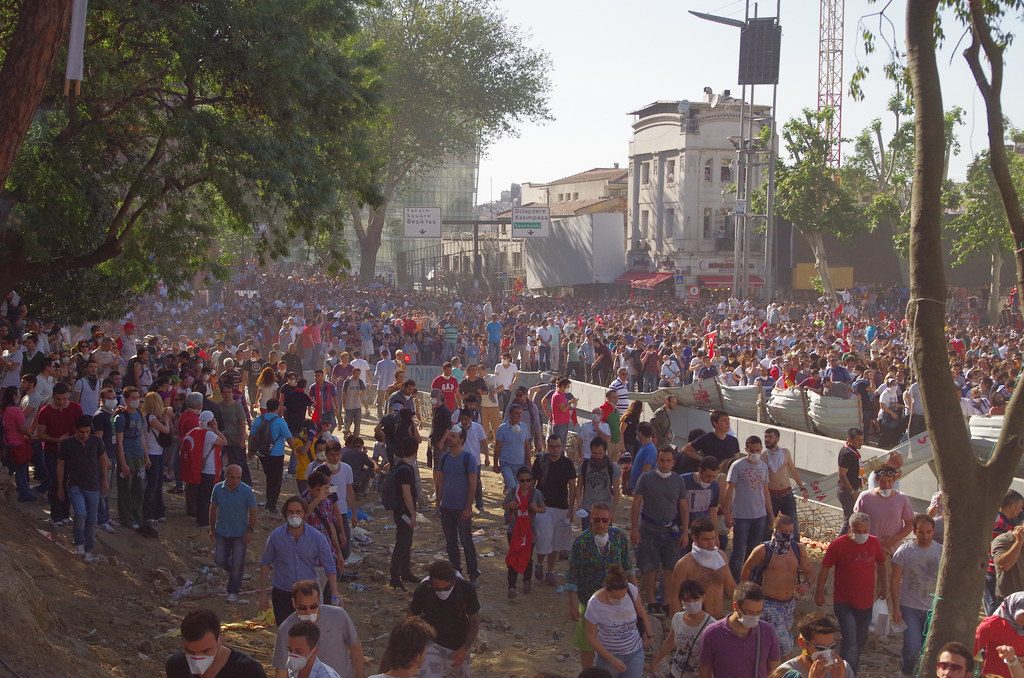
During that time back then, I visited Cardiff for a weekend and saw Cardiff University, and I wished for my son Ege, who was only nine then, to study there. Years later Ege studied Foundation in Art at the University of Glamorgan. Now he lives in Wales with me.
The belongingness that I felt towards Wales did not decrease after the three weeks I spent in Wales then, nor since.
I came back to Trebinshun House three more times after 2004. How much my English improved is to be debated but every time I came to Wales my sense of belonging here intensified further. As I focused so much on wanting to live here, my husband visited Wales too. When he saw my interaction with horses and saw me riding during our three days stay at the Gliff Hotel in Brecon he admitted: ‘Yes, you really belong here’. And he promised me: ‘We will live here – you have to give me a few years but I promise you that in the end I will bring you here…’
Once you become estranged from your environment you eventually become withdrawn. Because I didn’t feel myself belonging to the land that I was born in as a child I convinced myself that I was an extra-terrestrial. After sleeping by the window for other extraterrestrials to come and get me in a winter night, and instead getting pneumonia, for me the question of where I don’t belong gained importance over the question of where I belong. I didn’t belong to school, I didn’t belong to my mother’s relatives, I didn’t belong to my father’s relatives either. And I learned to live without belongingness. At the edges of the life, by joining in life with small steps, but with an enormous void in me.
I don’t remember my mother much, but I remember me being the only blonde with green eyes in my family. Not only in my family but also in primary school, I was the only blonde with green eyes. In secondary school there were three of us blondes, but their eyes were hazel. In high school four blondes. Particularly as a child I felt peculiar. It was like I was incomplete, or a foreign feeling, as if I was different from others because I didn’t look like them….
Like I was guilty or like being unable to describe the void in you for not looking like your family. What is strange is that these feelings had nothing to do with being loved or being happy. In your child mind, your look that separates you from others has nothing to do with being beautiful or ugly. As a child this is a feeling that you find it difficult to describe, impossible to name, a feeling that alienates you from others and makes you lonely.
When I started primary school, our teacher was asking everyone where they were from. When it was my turn I responded confidently that I was ‘European’. Our teacher’s eyes opened wide, she was trying to find words for a few seconds till she told me that I was born in Ankara and that I was Turkish. Later she telephoned my father and asked him why I didn’t want to be Turkish and were we having conversations about this in the family.
I still remember how angry I got in my young age then. I don’t know why I insisted I was European. Was it because from childhood I rejected everything that was forced onto me? Was it because I really feel like that? Was it because of what I heard from my paternal grandmother who lived in our house? Or because I wanted to be different? I can’t even say today. But I remember being so angry with my father the same day because he was adamantly trying to establish that we were Turks while I was trying to tell him that he was born in Ohrid, Macedonia and that my grandmother kept saying we were people from ‘the other side of the water’. My father couldn’t convince me nor I him. As always adults said the last word and the subject was closed.
I never felt myself belonging to Turkey where I was born and brought up nor to Macedonia where my grandmother who brought me up felt that she belonged. The same question kept circling in minds.
Who decides where we belong? Our family? The culture we are raised in? Or is it in our DNA? … Or is it the man with the huge boots? Would we have borders if we didn’t have wars? If the wars were not sanctified would we have people being thrown from one place to other? Who decides where the children of people who had to leave their countries and their children’s children belong? Their families, their cultures, their language, our memory of thousands of years contained in our DNA?
We all hear the sound of a gust of wind in the same way. We all get wet under the rain in the same way, we all sense the smell of the grass in the same way but we can’t determine where we belong to and how we belong. Why are we not allowed to find the land that we feel belonging to, the land that even calls us?
While I’m struggling with lots of questions I am also trying to settle into my new life in Wales. Part of me is very happy while the other part is filled with problems…
Perhaps because the shadows of terrifying huge buildings’ shadows are not here. Perhaps because I can hear bird sounds as opposed to traffic noises. Perhaps because the human crowd always in a hurry with unhappy expressions in their faces is no more, perhaps because I can start the day with white and white clouds as opposed to grey clouds, perhaps because mountains and forests embrace me, perhaps because I feel really comfortable next to people here, perhaps because I can enjoy a deeper communication with wild nature here, perhaps because nature is still not spoiled by the people here… I’ve never had any difficulty living here since I started living in this land. This land has wrapped me up in my most difficult times, healed me.
To understand why I felt so close to this land I even had a DNA test done. Even though my DNA test revealed that I had a connection to Celts, it still wasn’t enough to explain my sense of belonging here. After having to live here for some years and owing to my deep connection to nature here I stopped asking why. Because I now know that this land has a special meaning for me, this land helped me find myself, and I believe that there is a place calling for each of us, it is just we don’t know how to hear it and perhaps… For myself, I know that I’m very lucky as I live happily and in peace in this land that embraces me with the tenderness of a mother’s embrace…
BELONGING TO WALES / PERTHYN I GYMRU is a new series featuring extraordinary stories from ordinary people across Wales and beyond. It will investigate how individuals find a sense of belonging to their local community and to the nation.
The first four contributions are taken from an e-book of multilingual stories about arriving in Wales by Meltem Arikan (Turkish), Marie Darrieussecq (French), Edin Suljic (ex-Yugoslavian, English), and Jörg Bernig (German) – with English and Welsh translations. These texts were commissioned by Dr Kathryn Jones of Swansea University’s Department of Modern Languages, for the AHRC-funded research project ‘European Travellers to Wales 1750-2010’ at Bangor University.
Reader responses on these stories are welcome. Email [email protected]
We are also actively seeking submissions to the series. Email [email protected]
Main image by David Lloyd from Pixabay
All articles published on Click on Wales are subject to IWA’s disclaimer.


